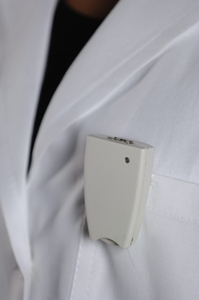Course Fee: $800
2026 Course Schedule:
August 13 – 14, 2026 – Online [register online]
About the Course: This is intended for individuals whose jobs include the management of personnel dosimetry programs for medical, academic, biomedical, veterinary, dental, pharmaceutical, industrial, NDT, well logging and other organizations that employ occupationally exposed radiation workers. Individuals in charge of personnel dosimetry programs may include nuclear medicine and radiology technologists, veterinary technologists, physics instructors, radiochemical production managers, or radiopharmaceutical technicians. The course is also suitable for those responsible for monitoring radiation exposure of non-occupationally exposed workers who may receive radiation exposure in the course of their work. Examples are emergency response professionals including fire, police, and paramedics. Attendees will receive course materials and a certificate suitable for framing. The first part of the course focuses on the technical and regulatory aspects of personnel monitoring. Topics covered include:
The first part of the course focuses on the technical and regulatory aspects of personnel monitoring. Topics covered include:
- Radiation fundamentals (types of radiation and their properties)
- Radiation units and simple dose calculations
- Biological effects of radiation
- Background radiation
- Radioactive sources
- Radiation-generating devices
The second part of the course includes what you need to know to effectively manage a personnel dosimetry program. Topics covered in the practical part of the course include:
- Regulations (especially dosimetry-related regulations)
- How radiation dosimeters work and description of specific dosimeter types
- Selecting and wearing dosimeters
- Designing and developing a dosimetry program
- Common problems with dosimetry program management and administration
- Recap of course
- Final exam
This will be an online course conducted via Zoom. You will receive your login instructions several days before the course begins.
The starting time for the first day will be 8:30 am Pacific Time or 11:30 am Eastern Time, and will end on 4:30 pm Pacific Time or 7:30 pm Eastern Time.
The starting time for the second day will be 8:30 am Pacific Time or 11:30 am Eastern Time, and will end on 12:30 pm Pacific Time or 3:30 pm Eastern Time.
About the Instructor
Jacob Kamen, Ph.D., CHP, CMLSO
- 2023 HPS Homeland Security and Emergency Response Section’s Distinguished Service Award.
- 2023 Selected the editor’s choice Mentor – Marquis who is who in America
- 2019 International Laser Safety award
- 2017 Health Physics Society Fellow Award
Senior Director, Chief Radiation & Laser Safety Officer – Mount Sinai Health System
Professor – Icahn School of Medicine at Mount Sinai

Dr. Kamen is a Professor of Radiology and the Senior Director of Radiation Safety at the Icahn School of Medicine at Mount Sinai. Upon earning a Bachelor of Science in Nuclear Engineering from the Polytechnic University in New York City, Dr. Kamen began working as a teaching assistant with Professor Melkonian at Columbia University. He spent several years at Brookhaven National Laboratory (BNL) as a research collaborator and received his Ph.D. in Nuclear Engineering from Columbia University. Through his research, he was involved in Neutron Activation Analysis and Monte Carlo calculations for Body Composition and Boron Neutron Capture Therapy project. He is now a Certified Health Physicist & Certified Medical Laser Safety Officer.
He became a national champion for Cesium replacement and was a key voice of experience for a 2015 series of workshops in Atlanta, California, and New York, as well as meetings in London and Vienna. He was critical in helping build relationships between the hospital community and law enforcement to drive efforts towards advancing alternate technology.
He is also a communicator, in addition to publishing papers and international reports on this topic, he works with the media, having been interviewed by the NBC news about the University of Washington accident and featured in the Nuclear Threat Initiative interview series called “Voices of Nuclear Security.”
Jacob helps build our next generation of health physicists by recruiting recent graduates and training them to be CHPs. Some of them have already started careers as Radiation Safety Officers.
Course Reviews
Our course evaluations for this course have been exceptional. 16 of the previous 17 attendees selected “excellent” for the “overall course quality” category in our rating scale (poor, average, good, excellent). With only one other attendee selecting “good”.
Some of the previous attendees had the following to say:
Attendee: The instructor for this course was superb. This could be one of the best courses on the topic I’ve taken.
Attendee: I had to take this course because we started a dosimetry program recently at our facility. I just wanted to say that I really appreciated the knowledge and helpfulness of the instructor, and how he went through examples that were specific to each class member’s industry.
Registration
You may register by any of several methods. The preferred method is online registration which you can do by clicking on the link beside the course date. You may also call to register.
